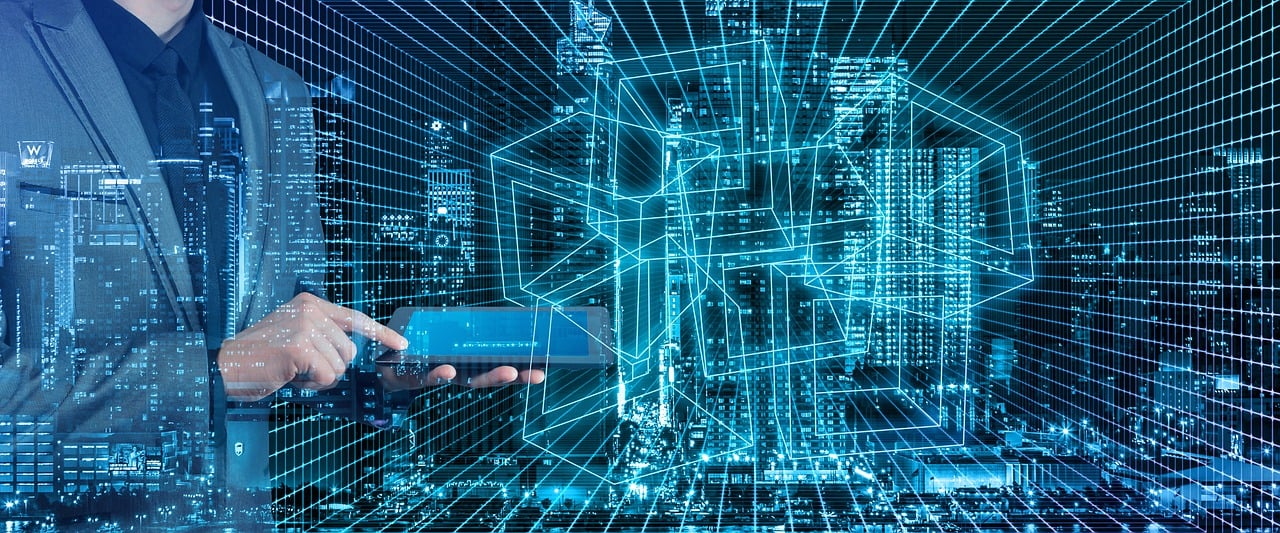Blockchain and the Potential for Decentralization of Power and Decision Making
Blockchain technology, best known for its application in cryptocurrency like Bitcoin, has the potential to revolutionize how we make decisions and distribute power. Its core principles of decentralization, transparency, and immutability offer a compelling alternative to traditional, centralized systems.

Image generated using AI
What is Decentralization?
Decentralization refers to the shifting of power and authority away from centralized institutions and towards individuals or smaller groups. In traditional systems, power is often concentrated in the hands of governments, corporations, or other large organizations. These entities make decisions that impact many people, often without their direct input or consent.

Image generated using AI
How Does Blockchain Enable Decentralization?
Blockchain is a distributed ledger technology that allows for secure and transparent recording of data. It works by creating a shared record of transactions that is replicated across a network of computers. This makes it tamper-proof and resistant to fraud.

Image generated using AI
The key features of blockchain that enable decentralization include:
- Consensus mechanisms: These algorithms allow the network to agree on the validity of transactions without the need for a central authority.
- Immutability: Once data is added to the blockchain, it cannot be changed or deleted. This creates a transparent and auditable record of all activity.
- Openness: Anyone can participate in a blockchain network, regardless of their location or background. This fosters collaboration and innovation.
Potential Applications of Blockchain for Decentralized Decision Making:
- Governance: Blockchain could be used to create more democratic and participatory forms of government. For example, citizens could vote on proposals directly on a blockchain platform, ensuring transparency and accountability.
- Resource management: Blockchain could be used to track and manage the use of resources, such as energy or water. This could help to prevent corruption and ensure that resources are used efficiently.
- Supply chain management: Blockchain could be used to track the movement of goods and materials throughout a supply chain. This could improve traceability and transparency, and help to prevent fraud.
- Identity management: Blockchain could be used to create secure and tamper-proof identities for individuals. This could help to prevent identity theft and fraud, and make it easier for people to access services.

Image Source: Pixabay
Challenges and Considerations
While blockchain has the potential to revolutionize decentralization, there are also challenges that need to be addressed:
- Scalability: Blockchain networks can become slow and congested as they grow. This can limit their usefulness for large-scale applications.
- Security: Blockchain networks are not immune to hacking and other security threats. It is important to develop robust security measures to protect against these threats.
- Adoption: Widespread adoption of blockchain technology is still in its early stages. This can create challenges for applications that require a large number of users.

Image Source: Pixabay
Despite these challenges, the potential benefits of blockchain for decentralization are significant. As the technology continues to develop and mature, it is likely to play an increasingly important role in shaping the future of decision-making and power distribution.
In conclusion, blockchain technology offers a unique opportunity to create more decentralized and participatory systems. While there are challenges to overcome, the potential benefits are significant. As we move towards a more interconnected and globalized world, blockchain may well become an essential tool for building a more equitable and sustainable future.
#blockchain #decentralization #powertothepeople #blockchainimpact #web3revolution #futureofpower #blockchainadoption
Congratulations @cryptoblocks1! You have completed the following achievement on the Hive blockchain And have been rewarded with New badge(s)
Your next target is to reach 50 replies.
You can view your badges on your board and compare yourself to others in the Ranking
If you no longer want to receive notifications, reply to this comment with the word
STOPCheck out our last posts: